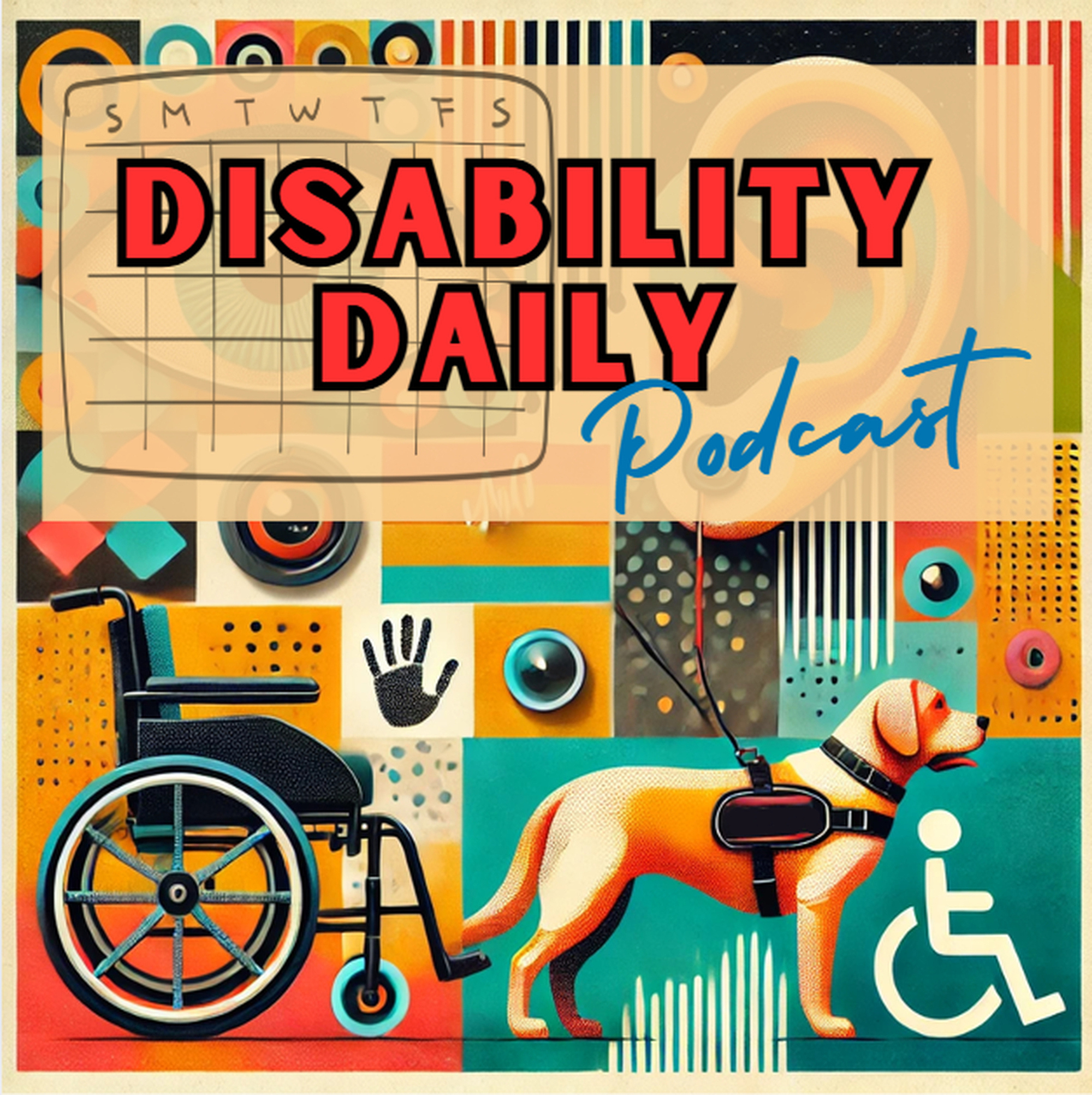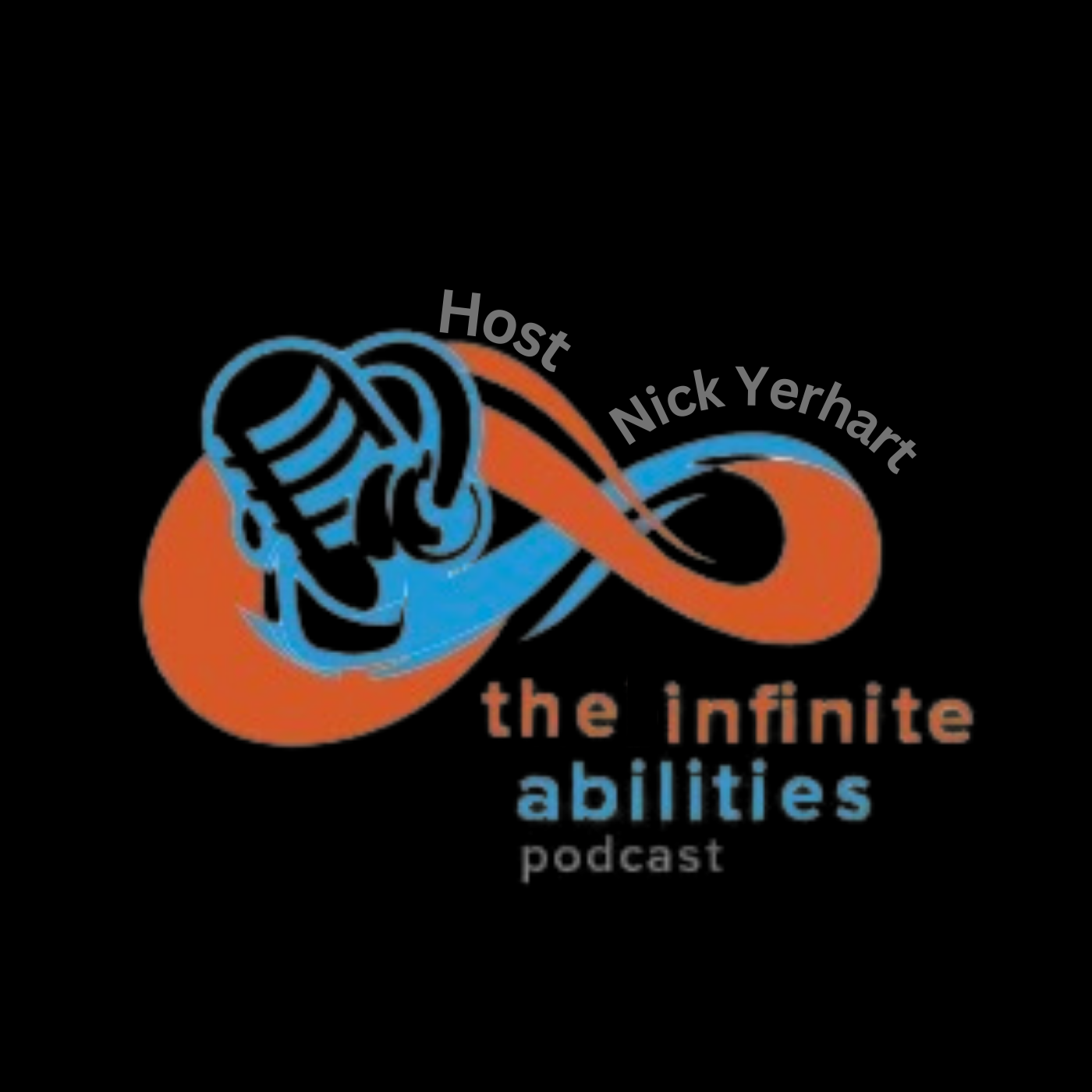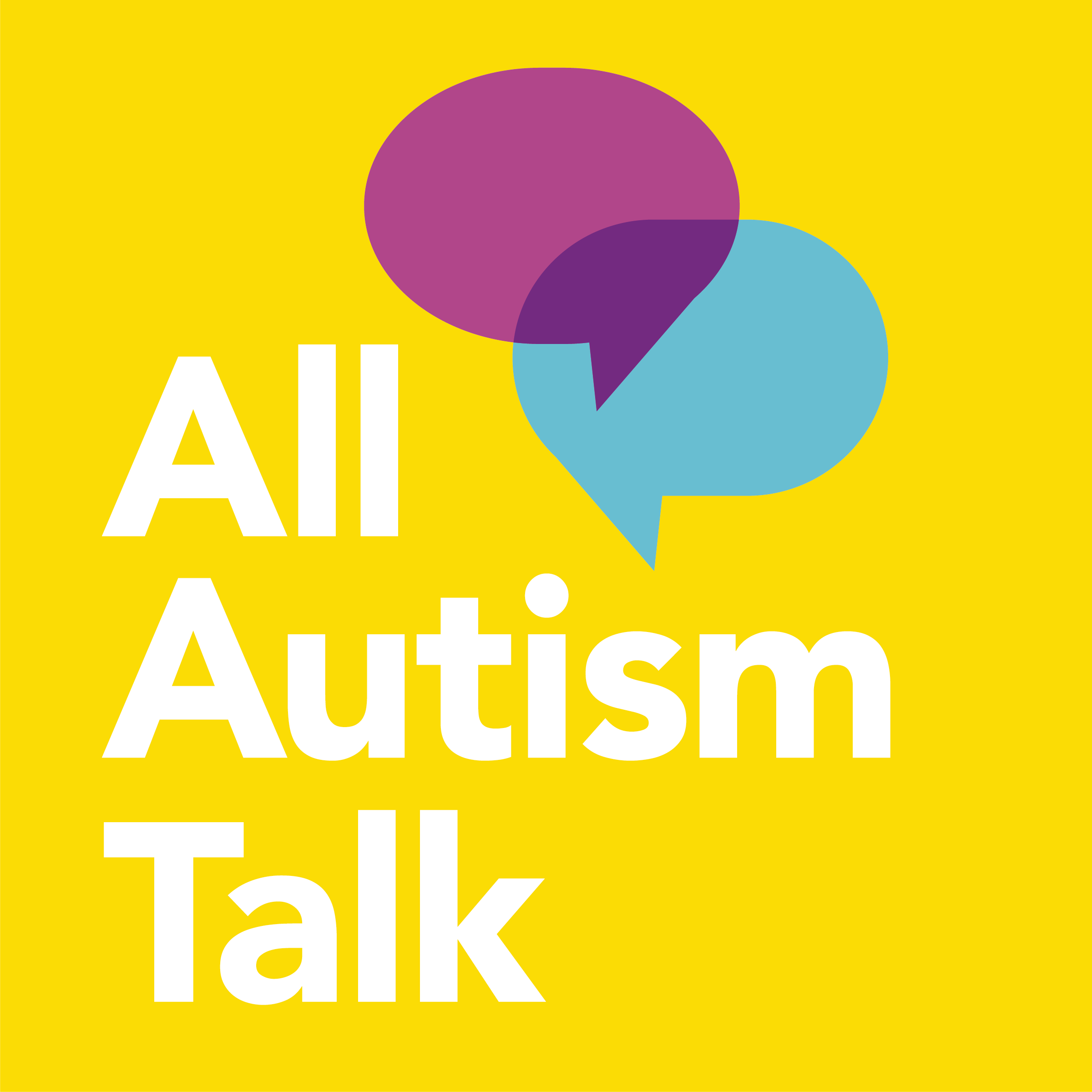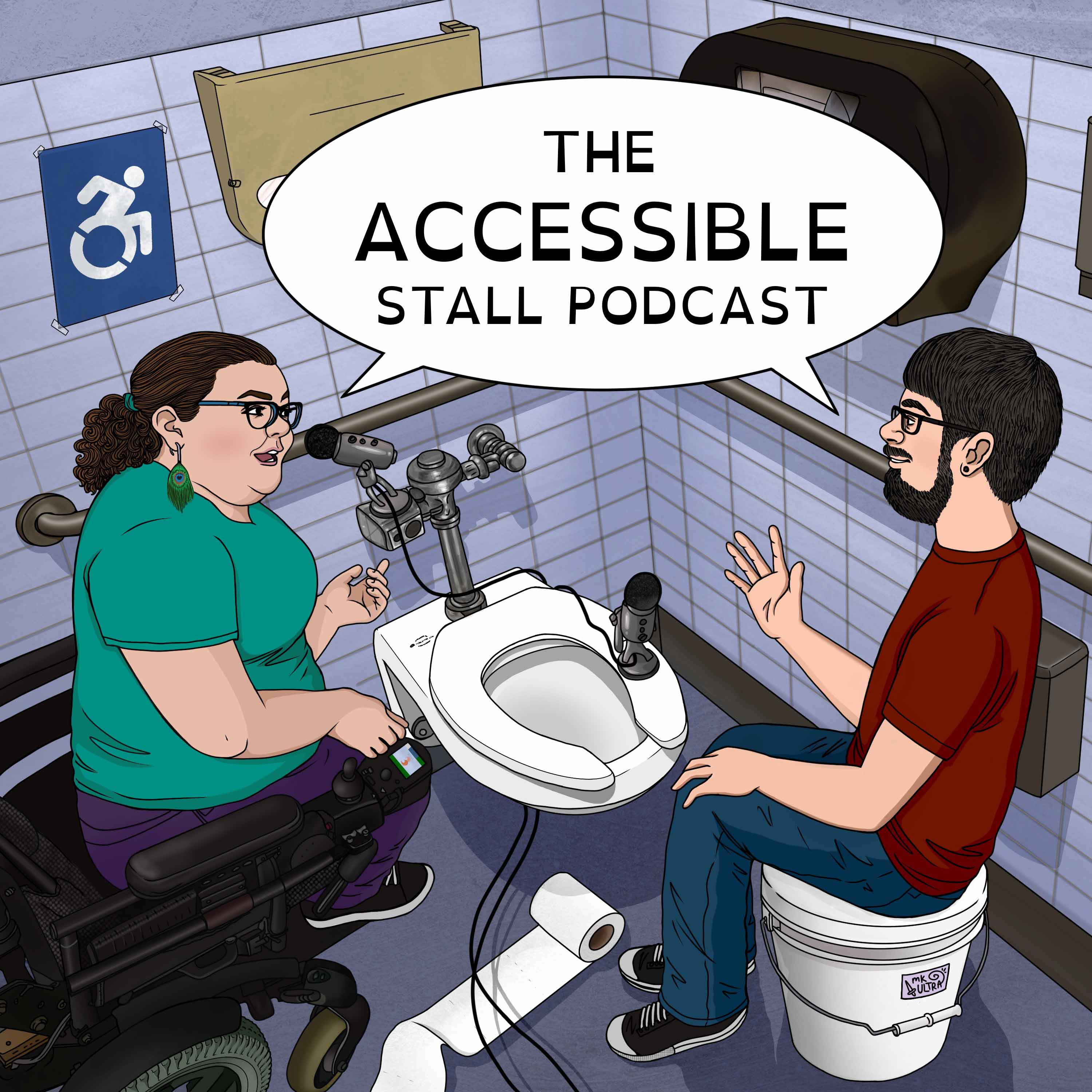
The Post Secondary Transition Conversation
We talk about the ins and outs (and everything in between) of the secondary transition process for families of students with disabilities! Hosts Meghan (Smallwood) and Patrick (Cadigan) serve as supportive guides, leading families step-by-step up each rung of the transition ladder.
Also check out our parent website: https://www.postsecondarytransition.com
The Post Secondary Transition Conversation
078. Interview: Jamie Brodnax - What is a Support Broker? Pt. 2
In this second installment, hosts Meghan (Smallwood) and Patrick (Cadigan) discuss the role of support broker with Jamie Brodnax. They talk about assisting families with person-centered planning (PCP) and self-direction, emphasizing the importance of understanding family needs, identifying goals, and managing funding. Jamie highlights the use of various tools to help keep her sane including apps and trackers. Jamie also addresses the challenges of staffing issues, advocating for clear employee handbooks and underscores the need for support brokers to be well-informed, organized, and able to connect families with resources to ensure individuals with disabilities can lead fulfilling lives. Join the conversation!
Episode Keywords:
support broker, person-centered planning, DDA budget, self-direction, IEP meetings, staff hiring, activity planning, fiscal management agency, employee handbook, termination process, time management, organizational skills, self-advocacy, community resources
Links:
Acronyms/Definitions (page)
Maryland (specific) Links/Supports:
Achieving Independent Support Services (site)
DDA Connection (page)
To download a copy of a transcript for this episode or any of our previous conversations, click here.
Also visit our Podcast webpage to find links to all of our other discussions; go to www.p2transition.com.
Additional information about post-secondary transition can be found at our website.
The Post-Secondary Transition Podcast Facebook page.
Visit our YouTube Channel to find additional video resources.
Intro/Outro music by AudioCoffee from Pixabay.
Transition music by Joseph McDade from Transistor.
Welcome, this is the Postsecondary Transition podcast where we have conversations around the ins and outs and everything in between of the transition process for families of students with disabilities. I'm one of the hosts. My name is Patrick Cadigan, and I am a public school transition coordinator. As always, I have a co host, and who would that be?
Meghan Smallwood:I am Meghan Smallwood, and I'm also a public school transition coordinator.
Patrick Cadigan:So we're back, and we are going to continue with our discussion with support broker Jamie Brodnax. This will be part two, and we are going to jump right into that discussion already in progress.
Meghan Smallwood:I was going to say, I know Jamie you mentioned this before about helping you know, if you're selected early on in the process, you can be involved in some of the PCP or person centered planning meetings and writing them for families. I think families get very confused and, again, overwhelmed. That seems to be the, you know, the main word, but not knowing what to expect. So I'm sure having you there, you know that have seen these before, and kind of know what DDA is looking for and what to expect can really help with the process as well. So I'm assuming you you are involved in that?
Jamie Brodnax:Yes; so you know, when it comes to developing the PCP and writing the PCP that is the CCS, that is their primary role, is taking all of this information from the family and from the team and developing it in LTSS and creating the plan. But I can assist with identifying how some of the things that the family shares or that the individual shares can be used to develop goals can be used to justify their services, and then, in turn, help them see how they can make their services work for them to achieve those goals. And you know, not to bring up the funding part again, but really, a lot of that is through funding. Sometimes we're having to make decisions on pay rates or benefits to make sure that there's funding available for the person to do the things that they want or need with their DDA budget.
Meghan Smallwood:Yeah, and that's a great point too, because if you are working closely with the family and you kind of know what they're looking for, and you are attending IEP meetings or just getting to know the student that can really add in an extra set of eyes on what kind of services might need to be included, or what needs to be looked at moving forward, so...
Jamie Brodnax:Absolutely, and it can also help me with identifying Is this a person who may want to get started early on creating advertisements and bringing on staff, or maybe this is a person who would do better with a vendor and, you know, attending a program or vendoring services, maybe they're not comfortable with hiring their staff or going through that process, and they would like to trust an agency to do that. All of that information comes out through those early conversations.
Meghan Smallwood:That's a great point, too, because I think the the default for a lot of families is, oh, well, I can work as staff and, you know, try to remind them, well, that's great, but you need to have, you know, plan B, C and D. You can't just be the only one supporting your individual, and it's not good for the young adult either. They need other people. So you definitely, I'm sure, providing some resources on how to hire and help them to manage new staff, right?
Jamie Brodnax:Absolutely. And that is really a big part of my role, is not only just helping them make that decision, but then connecting them with the right resources to decide. You know, maybe they want to go and interview a few different CDS programs, or maybe they want to talk to people who have hired their own staff. I also help with identifying activities, because one thing that I see parents sometimes not fully prepared for is the fact that when school ends and you're starting self direction, if your choice is to hire staff, what are you going to do with your day there's there is no one that's going to sit there and create a program for you that's the job of the staff person or the day to day administrator, if that's your choice. So another thing that I like to do for my teams is send out quarterly or seasonally lists of activities, a lot of times, free activities groups. And I learned that information from the internet, like most other people, just doing search, but also talking to the people that I support, finding out the things that they're doing that they love. And then you. Going back to those conversations that I've had and saying, you know, well, this person is loving this horseback riding activity, and I am now supporting another person who said that they want to do something with animals. Maybe this resource would be good for them too. And that's one of the things that I actually really love about this role, is introducing people to all of the things that are out there to fill your day and to help you meet your goals, and to really give you the life that you're looking for in self direction through understanding that it's not just services, it's a lot more than that.
Meghan Smallwood:Well, that's great that you can share those activities and ideas amongst your clients, because I think that is one thing I the the social media groups has been huge for certain groups more than others, but I see activities constantly listed, and I'm like, Oh, that's great that it's getting out there. But I also tell families, like, when they're transitioning youth and deciding it's going to do self directed or traditional like, just go visit the programs, because at the very least, you can get an activity calendar to get an idea of what they're doing and kind of replicate it if you go self directed.
Patrick Cadigan:Jamie, one question that I have is you are in a fairly unique position, in the sense that you started in the school system and then you transitioned and you became a Coordinator of Community Service, and now you've transitioned again into the support broker world. So in each one of those individual roles, and we've had many conversations, both online and offline, about tensions that exist in this new role as a support broker, are those tensions still there, or are they different?
Jamie Brodnax:I think any role is going to have some tensions, but definitely different in this role. Mainly, the tensions are related to the changes outside of our control, and how those are going to impact and, you know, trying to get ahead and making sure that we're prepared for whatever comes. But not knowing fully, would it that whatever is going to be, you know, team by team, sometimes there are tensions within the team. Thankfully, that's not always my position to have to manage, but I'm definitely there to assist if there is that inter team tension or any issues that come up.
Patrick Cadigan:So again, you continue to have to in, in some ways, you may continue to have to play the role of arbiter, or trying to think of the right word, but there, even now, as you have...
Meghan Smallwood:Mediator.
Patrick Cadigan:...yeah, as you have moved into this new role, they, like you said, there are still factors that sometimes these things can be it can lead to intense conversations.
Jamie Brodnax:Yeah, I mean, I'll say, whenever you're dealing with the services that really support someone's life, and then also dealing with money, there's going to be tensions. There. People have strong feelings related to both of those things, and particularly in this role where not everyone that I support is able to advocate for themselves, you have different team members who may believe that they know what's best, and it's a factor of us trying to all work together to make sure that the person is getting what's best. You know, having differing opinions isn't always a bad thing, but at the end of the day, we just have to focus on making sure that the person is receiving the support that they need to have, the life that they want to have.
Meghan Smallwood:And you kind of answered a question that we did have about how you can best support those people, to advocate and make sure that they're making informed decision. Sounds like you make sure they know all the facts before the decision is made.
Jamie Brodnax:Yup and I think that that's so important, it's really something that I've chosen to focus my role around is making sure that I am not making decisions for them, that I am providing the team and the individual with the information that they need to make their own choice. I can, of course, make suggestions, and sometimes do if they ask for that, but primarily, I just want to make sure that they know what's going on, what's required of them, and what their options are.
Meghan Smallwood:And that kind of reminds me of our role too, because we as transition specialists have to present all the information. And when it comes to some of those difficult topics, like guardianship or alternatives, you know, they they want to get or choosing a day program, they want to get our opinions on it, and it's hard sometimes to stay neutral, but I always tell them, you have to do what's best for you and your family. Most importantly, what for your young adult, what would be a meaningful choice for them?
Jamie Brodnax:Yes, and thankfully, I have through conversations and connecting with different people, have found some really fantastic. Stick families who are open to having those conversations that maybe in our roles we're not able to have. So one of the things that I do is, if I have a family who is really struggling with making some decisions for themselves or fully understanding what different situations might look like for their child, connecting those families with other families who have been in similar situations, of course, with both families being fully aware and agreeing to that connection.
Meghan Smallwood:And understanding this is that what they chose... Yes....secure them up and make sure you're making decisions based off of what works for you.
Jamie Brodnax:Absolutely
Meghan Smallwood:Always a caveat.
Patrick Cadigan:And then a kind of segueing a little bit, because I do have a systemic question, and what I mean by that...
Jamie Brodnax:Ok.
Patrick Cadigan:...is, what tools or systems do you use that helps you track all of the information that you're bringing So it sounds like in terms of a support in?
Jamie Brodnax:Oh, there are so many, I will say so when it's related to the budget and the individuals teams. Thankfully, I don't have to choose which systems to use. Each FMS has their own system. It is a requirement to use their system if you use them as your your fiscal management agency. So we won't get into all of those, because that could be a whole other conversation. But related to monitoring, managing the budget monitoring and managing timesheets, each fiscal management agency has their own for me. Personally, I use a lot of different folders and apps provided by my wonderful Microsoft account to manage all of the information that I am receiving. I'm also extremely organized when it comes to emails and separating the information from the things pertaining to specific clients, and I just keep track of things as they come in, really through reading them right away, identifying the important information and then grouping them based off of what their topics are. And then I will go back and re read everything again and put all of that together to share with others. When it comes to tracking the work that I do, I have an app that I use that tracks down to the second the person that I am working for, what I am doing for them. And is that billable work, and that creates weekly timesheets for myself, which has been extremely helpful and time broker, that time management is a huge component? saving in making sure that I am accurately tracking all of the work that I do. And then I also have trackers that I've designed for myself that remind me to monitor each person's budget if something comes up like, for example, there's been a recent change in the DDA rates. I develop a tracker, put that information in there and break it down based off of, does it apply to this person? What needs to be done? How you know the conversations, and then, has that information been completed by the deadline. So just lots of different tools to keep things on track, keep things running smoothly, and making sure that nothing is missed. Very much so.
Meghan Smallwood:And then do you have to submit any of those reports that you're generating for yourself, or is that just kept for you?
Jamie Brodnax:A little bit of both. So the trackers is more so for me to make sure that my teams are staying compliant. Instead of putting that responsibility on them, it just allows me to monitor have these things been done? Maybe some teams need reminders. If there's a special circumstance that applies to someone, things like that, the billing and reporting regarding the work being done for each client that does have to be shared with the fiscal management agencies whenever I choose to bill which I personally Bill monthly. So when I do that, I have to share down to the minute, the exact time that I worked for that individual and what was done during that time.
Meghan Smallwood:So you have a direct interaction with the FMS; what about with DDA or even DORS? Do you have any connection directly with them?
Jamie Brodnax:So DORS, not too often, unless there is a specific referral that someone I support is asking me to help with. A lot of times that will follow on the CCS, but. So communication with DDA varies. There is some communication that I have directly with them when it comes to the appeal process or the IFDGS process, when it's related to issues regarding budgeting, or maybe a problem with the FMS. I may take lead in contacting DDA, but a lot of times it's going to be the CCS that is doing that direct communication with DDA, and then I can, of course, be included in that and provide any information from the fiscal side, but a lot of times that main communication is coming from your CCS. Yes.
Meghan Smallwood:And IDFGS..? For those who might not know.
Jamie Brodnax:That is the Individual and Family Direct Goods and Services. So that is, it encompasses a lot of different things that a person could use, again, the cost savings in their budget to help cover the cost of sometimes it is things specific to a person's disability and maybe their safety or sensory needs, but sometimes it's also activities like gym memberships, horseback riding, swim classes, things like that, that maybe is a difficult cost for the individual or their family to take one for themselves if they have it in the budget, DDA allows you to submit a request to use that extra money to cover the cost of some of those items.
Meghan Smallwood:And that's the part where I think families get confused, because they know what the individual enjoys or would like for them to do. They don't know where it fits in. And so I always advise them talk to your CCS, talk to your support broker, because, for example, horseback riding, if the student or individual is an avid horseback rider, let them know the activity, and they can help to figure out where it would go in the plan.
Jamie Brodnax:Absolutely. And because horseback riding specifically is such a popular activity for individuals receiving DDA services, a lot of the horseback riding providers in the area are willing to be paid directly from a person's budget, so there's no cost to the family. Of course, if it's approved by DDA.
Meghan Smallwood:Oh, that's good to know.
Patrick Cadigan:One last question that I have, and this is again, kind of going off on a side track. But what happens if a staff member quits or doesn't show up? Do you help in those situations?
Jamie Brodnax:I definitely can, and a couple different ways. So if it is that a staff member isn't showing up, or if there's any other problems with the staff member, I can work with the individual, their representative, and help them identify a plan of action. Is it that they are ready to move forward with dismissing that employee? Or do we want to talk about, you know, these are the consequences. We're going to share this information with the employee let them know. You know, this isn't acceptable. These are our expectations, and you know how we're going to handle this now and again in the future, if it occurs, highly recommend, before we even get to that point, creating an employee handbook at the beginning of your services, which is something that I do assist all of my clients in doing, if that's their choice, the employee handbook will be very straightforward in describing the job role, the expectations, the hours, the pay. You know what is okay at work and what isn't okay the needs of the individual and and also the expectations regarding the employee themselves, maintaining their training, taking additional trainings if that client needs that, and then also listing benefits, time off expectations, and of course, the rules regarding not showing up on time, doing things that do not align with the expectations. A big one right now is phone usage. A lot of people are choosing to put information about that in their their employee handbooks to make sure you know it's understood what their expectation is regarding that. So if you do the handbook, it makes the conversation a little bit easier when something doesn't go as planned, because the expectations were already laid out when that person was hired, if there is not a resolution or an ability to fix the problems that are occurring, at any point, an individual is able to choose to terminate the employment of one of their employees that is due. Done by a termination letter that we would send to the employee that again, I can help them in drafting. DDA also provides templates and samples on their website. And then we would move forward with contacting the FMS, letting them know that the individual has made the decision not to move forward with this employee. And there's a form each FMS has their own form, but there's a form that we would fill out to make that termination final.
Patrick Cadigan:All right then, well, originally, the plan was to end on a on a positive note, which is to say, asking about, you know, the rewarding part of your job, but you actually had addressed that earlier. So yeah, one, one last question is, is it, what skills or qualities would you think make a good support broker?
Jamie Brodnax:Whoa, that is a good question.
Meghan Smallwood:Organization and time management definitely came to mind when you were talking about all you do.
Jamie Brodnax:That is a very good question, because it's not something that I feel like I really think about. It's more so just something that I do, but time management is a huge part of it, also taking the time to fully understand everything related to self direction. You know, there is a support broker training that is given that we have to pass now on a yearly basis to be a support broker. That training just touches on you earlier about shameless self promotion. But how can people the important details, but doesn't really get into all of the background information that I feel makes a person a good support broker. So I would say putting in that time to inform yourself, educate yourself, attend those hearings and those webinars so that you are up to date with what is going on, because today's rules might not be tomorrow's rules, and your teams are going to look at you for that information. So you want to make sure that you have that information to give them find you? You can find me on social media. I am on Facebook and Instagram under my name, which is Jamie Brodnax, or my company's name, Achieving Independent Support Services. I also have a website that needs to be updated, so don't judge me on that too hard.
Patrick Cadigan:Oh no, oh no, no, there will be judging.
Meghan Smallwood:I think we know someone who could help.
Patrick Cadigan:There will be a lot of judging. Well, fantastic.
Meghan Smallwood:Thank you so much, Jamie, that was very informative, and I think so so much needed to revisit for families.
Jamie Brodnax:Thank you. Well. thank you for having me. I'm always happy to talk to you guys... We appreciate it....and share whatever I know.
Patrick Cadigan:Awesome. Well, thank you. Thank you. Thank you. And as always, Meghan and I will be back again in two weeks time with another fantastic conversation.
Meghan Smallwood:Sure will. As always, you'll find links to the information from our conversations in our show notes. We would love for the information from this and all our other discussions to reach as many families as possible, and we need your help to do that. You can find our conversations at www.p2transition.com, like, follow, share out the podcast. Our conversations are posted to all the major platforms, including Apple podcasts, Spotify, YouTube music, and that's just naming a few. So please share and share often.
Patrick Cadigan:Please check out our YouTube channel. We've done some of the legwork for you by curating videos of topics that revolve around transition. We have playlists for guardianship, alternatives to guardianship, ABLE accounts, and there's more to come. So please be sure to subscribe there as well. And finally, check out our website, which is full of information and links to resources around the transition process. Open your web browser of choice and surf to www.postsecondarytransition.com so we thank you so much for the time that you've spent with us, and look forward to talking again soon.
Podcasts we love
Check out these other fine podcasts recommended by us, not an algorithm.

T21Mom-A Down Syndrome Podcast
T21Mom.com
The Collaborative IEP
Ashley Barlow
Disability Daily Podcast
Katie Healey, PhD, CPACC
The Infinite Abilities Podcast
Nick Yerhart
All Autism Talk
All Autism Talk
The Accessible Stall
Kyle Khachadurian and Emily Ladau
Disability Deep Dive
Disability Rights Florida
STAY Tuned: Supporting Transition-Age Youth with mental health conditions
STAY Tuned at Transitions to Adulthood Center for Research
Moms Talk Autism Podcast
Shannon Korza, Brittney Crabtree, Tash Dillmon, and Jean Mayer
Your Child's Brain
WYPR Baltimore



